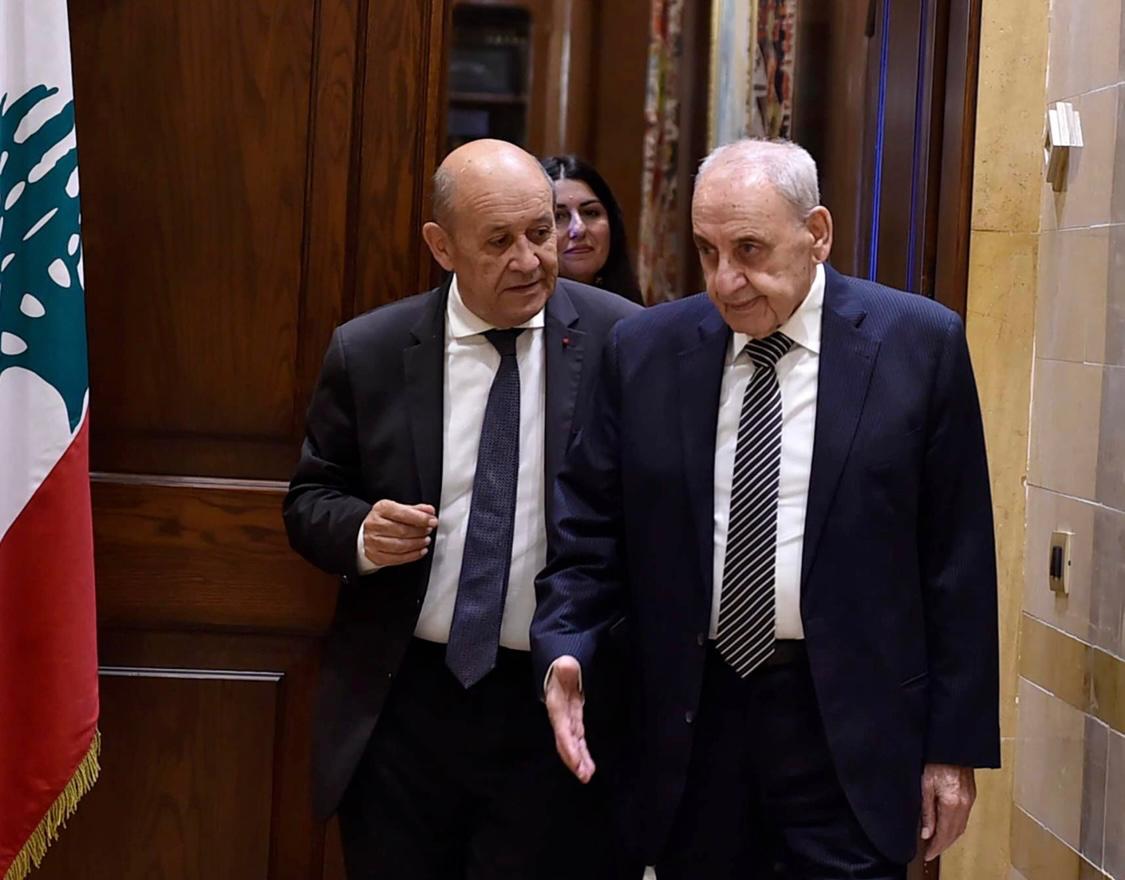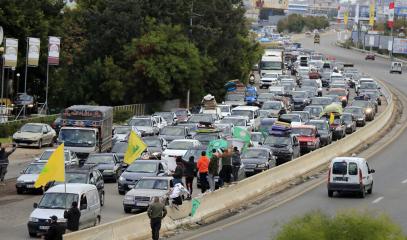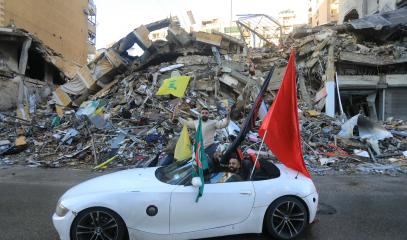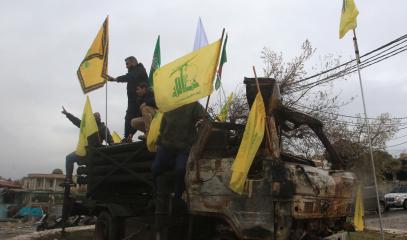Beirut, from truce to presidential election: the real crux of the Lebanese crisis
On 9 January, a new session for the election of the head of state. ‘The moment of truth has arrived for the Lebanese, especially for the Shia community,’ says Speaker Berry. After the cease-fire it will be the decisive test for the future. The probable return of Hezbollah to a ‘political role’.
Beirut (AsiaNews) - ‘Was the shock of war really necessary?’. This is the question being asked by the Lebanese, stunned by the last day of senseless and incessant Israeli bombardment that caused at least 30 deaths and, at the same time, happy for a ceasefire in which they had given up hope.
As soon as the ceasefire took effect, tens of thousands of displaced people - many of them displaying the ‘V’ of victory - began to return to the towns and villages they had been driven out of since 23 September following the sudden Israeli evacuation order. In southern Lebanon, however, the return has posed a number of problems.
In their impatience, many families took roads or went to villages where the Israeli army was still on war footing. Yesterday, a reporter was shot in the leg and another was injured by fire from Israeli tanks he had come too close to. The army (IDF) finally imposed a night-time traffic ban on all roads within its firing range, while Lebanese armoured troops were sent to Marjeyoun to prevent any contact between the population and Israeli soldiers.
Politically, the ceasefire was met with mixed reactions. For some Lebanese, who secretly hoped that Israel would ‘finish the job’, the pro-Iranian Hezbollah party is ‘still too strong’.
In the opposite camp, it is argued that Beirut ‘has made too many concessions on its sovereignty’ and that the agreement benefits Israel. But beyond these initial reactions, political circles are trying to understand ‘whether the Shia community has finally woken up from its hegemonic dream’, after the shock of the war that devastated the Land of the Cedars and left nearly 4,000 dead and 16,000 wounded.
Yes, say people close to the military-political party, who acknowledge that the Lebanese Shia movement ‘has emerged from this war considerably weakened’. ‘Insiders’ add that “if the first day of the ceasefire was a real test for Hezbollah's popularity, the war against Israel and its catastrophic results have put an end to its regional role, although there is still uncertainty about its weapons and funding”.
A local analyst, approached by AsiaNews on condition of anonymity, emphasises the role of House Speaker Nabih Berry, a Shiite, who is considered ‘the main architect of the ceasefire’ as well as the figure capable of directing ‘the next phase’. In a televised speech, he declared that ‘this is the hour of truth for all the communities that make up Lebanon, but particularly for the Shia community’.
With concern for the unity of the Lebanese at the top of his agenda, Berry announced, as he had promised, the election as soon as possible of a president of the Republic ‘who is not a challenge to anyone’ by identifying a personality capable of guaranteeing national cohesion. In this regard, the news that the Chamber's bureau has set 9 January next year as the date for the session to elect the head of state to succeed Michel Aoun after more than two years of vacancy is just a few hours away.
In the meantime, on the screen of the Nbn TV channel, which he controls, the Speaker of the House asked to display the slogan ‘Lebanon, definitive homeland’, words referring to the Taif Agreement (1989), which put an end to the civil war that began in 1975. It is no coincidence that this expression echoes the latest public statement by Sheikh Naïm Kassem, Hezbollah's new secretary general, in which he gave the green light at least on the verbal level to what many Lebanese are waiting for: a return of the Party of God to the Taif Agreement and the institutional landscape. The dignitary also hinted that Hezbollah will henceforth limit itself to ‘its political role’.
Berry's speech, warmly welcomed by opposition circles, coincided with the arrival in Lebanon of the French presidential envoy, Jean-Yves Le Drian, who has been assigned by President Emmanuel Macron precisely to facilitate the election of a president of the Republic. The diplomat will meet Prime Minister Nagib Mikati and Nabih Berry himself in the morning today. Following this, he will be received at the Résidence des Pins by the ambassadors who are part of the Paris-Egypt-Saudi Arabia-Egypt-Qatar quintet, charged with making contacts and facilitating the presidential election.
‘The main candidate for the presidency remains the army commander, General Joseph Aoun,’ stresses Scarlett Haddad of L'Orient-Le Jour (LOJ), ‘but nothing is certain yet and he may be needed more as head and leader of the army than as head of state’. In parallel to the arrival of the former French foreign minister, the American architect of the ceasefire, Amos Hochstein, announced the entry into Lebanon last night of an American team associated with the monitoring committee of the truce agreement. ‘We must support the Lebanese army, the Lebanese economy and the Lebanese people, or we will return to conflict,’ he warned during an online briefing with the Lebanese-American community in Washington.
Commenting on the ceasefire agreement between Lebanon and Israel, Hochstein went on to emphasise: ‘This is not a 60-day truce, but a permanent ceasefire’. In his view, the period of about two months gives the Lebanese army time to gradually deploy effectively. ‘The Lebanese government has given the green light to the deployment of the army in southern Lebanon,’ concluded the main architect of the ceasefire, ‘and the simultaneous dismantling of Hezbollah's military infrastructure.
Finally, analysts and experts point out that under the agreement, the United States and France will join the tripartite mechanism created after the 2006 war, which brings together the United Nations Interim Force (Unifil), Israel and Lebanon. This mechanism, now chaired by the United States, aims to maintain ‘direct’ communication between the various parties and to ensure that ‘whenever a violation, particularly a serious violation’ is identified, it is ‘addressed immediately’ to avoid escalation.
12/02/2016 15:14










.png)










